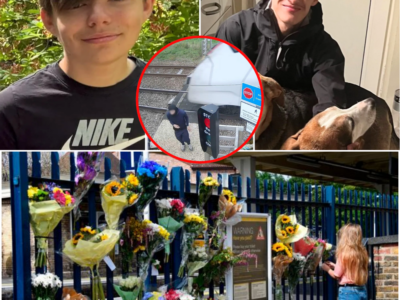
On May 28, 2025, Meghan Markle, the Duchess of Sussex, posted a charming photo on her lifestyle brand As Ever’s Instagram page, showcasing a vibrant basket of vegetables purportedly harvested from her Montecito mansion’s garden. Captioned “The unofficial quality inspector of this morning’s garden haul,” the image featured her rescue beagle, Mia, sniffing a wicker basket brimming with broccoli, carrots, corn, red bell peppers, squash, spring onions, and fresh herbs. The post, meant to highlight her farm-to-table ethos, quickly ignited a firestorm of skepticism among royal fans and gardening enthusiasts alike. Social media platforms, particularly X, buzzed with accusations that the vegetables were not home-grown, citing their pristine appearance and questionable seasonality. This controversy has thrust Meghan’s carefully curated domestic image into the spotlight, raising questions about authenticity in her lifestyle brand narrative.
The skepticism stems from two primary observations. First, the vegetables in the photo appeared immaculately clean, lacking the dirt typically associated with freshly harvested produce. One X user quipped, “She’s so good at gardening she can grow all things from all seasons at once,” while another noted, “I’ve never seen vegetables so clean after harvesting.” Critics argued that the flawless presentation suggested the produce might have been purchased from a supermarket or farmer’s market rather than plucked from her garden. Second, and more damning, was the issue of seasonality. According to the California Farmland Trust, sweet corn is typically harvested from June to September, making a May harvest in Montecito, located in Santa Barbara County, highly unlikely. Similarly, broccoli is generally picked earlier in the year, while spring onions, bell peppers, carrots, and certain squash varieties are more plausibly in season. Comments on X, such as “Who is harvesting corn in May? It’s pretty early for squash and peppers too,” fueled speculation that Meghan’s garden haul was staged for social media clout.
Meghan’s gardening endeavors are not new. As early as 2019, reports surfaced that she and Prince Harry were planting an organic vegetable garden at Frogmore Cottage in the UK to support their farm-to-table lifestyle. After relocating to their $14.65 million Montecito estate in 2020, Meghan continued to emphasize gardening as a core component of her brand. Her Netflix series, With Love, Meghan, launched in March 2025, featured glimpses of her tending to vegetables and beekeeping, reinforcing her image as a relatable, hands-on homemaker. She has shared previous garden hauls on Instagram, including a post on April 29, 2025, showcasing white roses, oranges, and strawberries, captioned “End of day harvest.” In a May 27 interview with Fast Company, Meghan articulated that her lifestyle brand, As Ever, is “rooted in the love story of your home and garden,” suggesting that her gardening posts are integral to her personal and professional narrative.
However, the pristine vegetables and seasonal discrepancies in her latest post have led to accusations of inauthenticity. Some critics on X went as far as to post California’s harvest calendar as evidence, with one user stating, “The only place I see all that in season is the grocery store produce section.” Others pointed out the uniformity of the vegetables, noting, “That bell pepper, that green onion—they’re a certain supermarket size, not grown on a family farm.” The backlash has been amplified by Meghan’s polarizing public image. While some fans admire her for embracing a sustainable, homegrown lifestyle, others view her posts as calculated attempts to project an idealized persona. A local Montecito journalist, Richard Mineards, recently claimed that Meghan remains “distant” from the community, contrasting her with more engaged celebrities like Oprah Winfrey. This perception of aloofness may have intensified the scrutiny of her garden haul.
Gardening in Montecito’s Mediterranean climate is indeed feasible year-round, with proper care and irrigation. The region’s mild winters and warm summers support a variety of crops, and wealthy residents often employ professional gardeners to maintain lush estates. It’s plausible that Meghan’s garden, likely managed by experts, could yield a diverse harvest. For instance, bell peppers and carrots can be grown in May with the right conditions, such as greenhouses or early planting. However, corn remains an outlier, as it typically requires warmer soil temperatures and a longer growing season. Without evidence of advanced gardening techniques, the inclusion of corn in her haul raises legitimate questions.
The controversy also touches on broader themes of celebrity authenticity. Meghan’s As Ever brand, which evolved from her earlier venture, American Riviera Orchard, has positioned her as an aspirational figure in the lifestyle space, akin to Gwyneth Paltrow or Martha Stewart. Her Netflix series and Instagram posts emphasize relatable activities—cooking, gardening, and crafting—while showcasing high-low fashion, such as $49 Crocs clogs paired with luxury pieces. Yet, the polished nature of her content, from the rented Montecito compound used for filming to the flawless vegetables, invites skepticism. One X user remarked, “She’s trying to emulate someone she’s not. Fake home, fake hobbies.” This sentiment reflects a tension between Meghan’s desire to appear down-to-earth and the reality of her ultra-privileged lifestyle.
Despite the criticism, Meghan’s supporters argue that the backlash is overblown. Gardening is inherently variable, and microclimates or professional assistance could explain her harvest. The emphasis on cleanliness might reflect her attention to presentation, a hallmark of her brand. Moreover, her posts align with her stated values of sustainability and family-oriented living. In With Love, Meghan, she shares recipes like a spring garden pasta salad, inspired by her Montecito garden, featuring vegetables like snap peas and zucchini. These efforts resonate with fans who appreciate her focus on wholesome, home-centered content, as seen in her rare glimpses of Prince Archie and Princess Lilibet engaging in garden activities.
The timing of the controversy adds another layer. The garden haul post came one day after Meghan announced she would “step back to assess” As Ever’s achievements and future direction, with new products delayed until 2026. This strategic pause suggests a response to mixed reception of her brand’s initial offerings, such as $14 jams and $28 honey jars, which sold out quickly but faced criticism for their exclusivity. The garden haul, intended as a lighthearted glimpse into her life, may have inadvertently highlighted vulnerabilities in her brand’s authenticity narrative.
Ultimately, the debate over Meghan’s vegetables underscores the challenges of crafting a public persona in the digital age. Whether her haul was genuinely home-grown or carefully curated, the scrutiny reflects broader cultural dynamics around celebrity, privilege, and authenticity. For every critic questioning her green thumb, there’s a fan inspired by her vision of a garden-centric lifestyle. As Meghan navigates this controversy, her ability to balance relatability with aspiration will determine whether her brand can weather the storm—or if this garden gaffe will leave a lasting mark.


